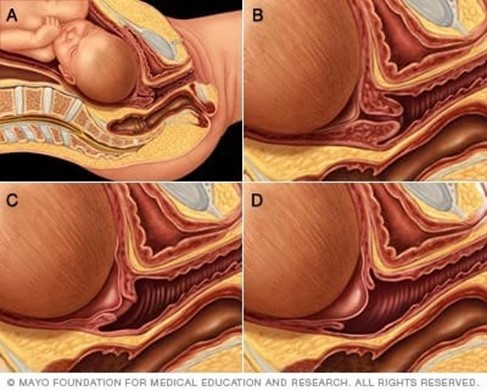A nurse is assisting with the care of a newborn immediately following birth. Which of the following medications should the nurse expect to administer? (Select all that apply.).
Lidocaine gel to the umbilical stump.
Hepatitis B immunization.
Phytonadione injection.
Antibiotic ophthalmic ointment.
Haemophilus influenzae type b vaccine (Hib).
Correct Answer : B,C,D
Choice A:
Lidocaine gel to the umbilical stump is not a medication that the nurse should expect to administer to a newborn immediately following birth. Lidocaine gel is a topical anesthetic that is used to numb the skin before procedures such as injections or sutures. It is not indicated for the umbilical stump, which does not require any anesthesia.
Choice B:
Hepatitis B immunization is a medication that the nurse should expect to administer to a newborn immediately following birth. Hepatitis B is a viral infection that can cause liver damage and cancer. The immunization protects the newborn from contracting the infection from the mother or other sources. The immunization is given as an intramuscular injection in the anterolateral thigh within 12 hours of birth.
Choice C:
Phytonadione injection is a medication that the nurse should expect to administer to a newborn immediately following birth. Phytonadione is also known as vitamin K, which is essential for blood clotting. Newborns have low levels of vitamin K at birth, which puts them at risk of bleeding disorders such as hemorrhagic disease of the newborn. The injection is given as a single dose of 0.5 to 1 mg in the vastus lateralis muscle within 1 hour of birth.
Choice D:
Antibiotic ophthalmic ointment is a medication that the nurse should expect to administer to a newborn immediately following birth. Antibiotic ophthalmic ointment prevents eye infections caused by bacteria such as gonorrhea or chlamydia, which can be transmitted from the mother during delivery. The ointment is applied to both eyes within 1 hour of birth.
Choice E:
Haemophilus influenzae type b vaccine (Hib) is not a medication that the nurse should expect to administer to a newborn immediately following birth. Hib is a bacterial infection that can cause meningitis, pneumonia, and other serious illnesses. The vaccine protects the newborn from Hib infection, but it is not given at birth. The vaccine is part of the routine immunization schedule and is usually given at 2, 4, and 6 months of age.
Nursing Test Bank
Naxlex Comprehensive Predictor Exams
Related Questions
Correct Answer is B
Explanation
Choice A reason:
Contractions every 3 to 4 min are not a definitive sign of labor, as they can also occur in false labor or Braxton Hicks contractions. These are irregular and do not cause cervical changes.

Choice B reason:
Cervical dilation is the most reliable indicator of true labor, as it shows that the uterus is contracting effectively and preparing for delivery. Cervical dilation is measured in centimeters from 0 to 10, with 10 being fully dilated.
Choice C reason:
Pain just above the navel is not a sign of labor, but rather a possible sign of an abdominal problem such as appendicitis or gallbladder disease. Labor pain usually starts in the lower back and radiates to the abdomen and thighs.
Choice D reason:
Amniotic fluid in the vaginal vault is not a conclusive sign of labor, as it can also result from a premature rupture of membranes (PROM) or a high leak of amniotic fluid. PROM occurs when the amniotic sac breaks before the onset of labor, which can increase the risk of infection and complications for the mother and the baby.
Correct Answer is B
Explanation
Choice A reason:
Allowing opportunities for newborn massage is not recommended for preterm newborns, as it can increase their oxygen consumption and energy expenditure. Massage can also cause stress responses, such as increased heart rate, blood pressure, and cortisol levels.
Choice B reason:
Clustering the newborn's care activities is the best way to help the newborn conserve energy, as it minimizes the frequency of handling and stimulation. Clustering care also allows for longer periods of uninterrupted sleep, which is essential for growth and development.
Choice C reason:
Changing the newborn's position every 2 hours is not necessary for preterm newborns, as it can disrupt their sleep and cause them to lose heat. Preterm newborns have limited ability to regulate their body temperature, and frequent position changes can expose them to cold stress.
Choice D reason:
Placing elbow restraints on the newborn is not indicated for preterm newborns, unless they have a specific condition that requires them, such as a cleft lip or palate repair. Elbow restraints can restrict the newborn's movement and cause skin irritation or injury.
Whether you are a student looking to ace your exams or a practicing nurse seeking to enhance your expertise , our nursing education contents will empower you with the confidence and competence to make a difference in the lives of patients and become a respected leader in the healthcare field.
Visit Naxlex, invest in your future and unlock endless possibilities with our unparalleled nursing education contents today
Report Wrong Answer on the Current Question
Do you disagree with the answer? If yes, what is your expected answer? Explain.
Kindly be descriptive with the issue you are facing.
